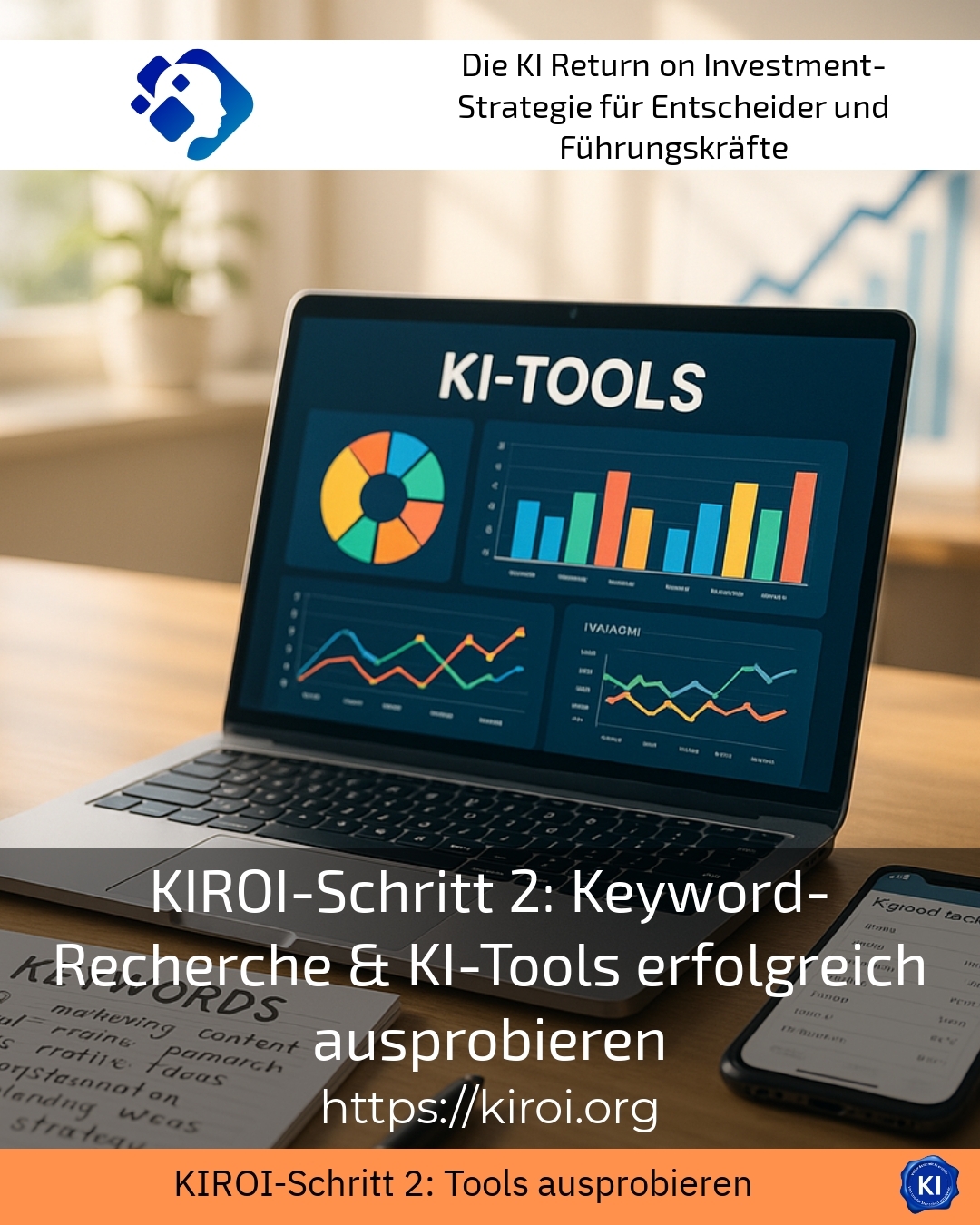The importance of well-founded keyword research
In many online content projects, it becomes clear how essential keyword research is. It forms the basis for any strategy that aims to find content in a targeted manner. People come to us with different questions and needs when it comes to terms and search terms. Keyword research helps us to recognise these needs and target content appropriately. Clients often report that they are unsure, especially at the beginning, how to categorise the multitude of potential terms in a meaningful way. A systematic approach helps to better recognise opportunities and proceed in a targeted manner.
Methodical approach to keyword research
The second step of this approach is primarily concerned with evaluating and prioritising the collected keyword lists. It is important to focus on the right key figures: search volume, competitive intensity and, if applicable, the cost per click. In the e-commerce sector in particular, companies can use this analysis to better position their product names and long-tail variants. Clinics that cover medical topics use this data to find keywords with high search intent and moderate competition. This not only provides a database, but also impetus for the strategic management of content.
KIROI BEST PRACTICE at company XYZ (name changed due to NDA contract)
A company from the tourism sector worked with this structured evaluation of keywords along different travel destinations. The analysis of search volume and competition for terms such as "family holiday in the mountains" or "active hiking holiday" led to a data-based focus in the content strategy. The result was a significant increase in organic reach with improved user targeting at the same time.
Practical examples for the use of keyword tools
Keyword research often starts with a brainstorming session in which initial terms and phrases are collected. Even at this stage, it makes sense to try out different versions and variants in order to capture a comprehensive spectrum. It is then advisable to use special AI-supported tools to refine and expand the lists. The tools help to determine search volumes, competition, related terms and provide information on long-tail keywords. This often reveals new potential that would hardly have been found through manual collection.
KIROI BEST PRACTICE at ABC (name changed due to NDA contract)
A company from the healthcare services sector used AI-based tools to identify topic-specific long-tail keywords in addition to common terms. This made it possible to find keywords that had a high search intent but less competition. The accompanying coaching provided support in incorporating these findings into content planning and sustainably increasing visibility.
In addition to well-known tools, there are also innovative approaches that use AI to recognise keyword gaps. This allows existing content to be systematically matched with possible search terms. This provides a targeted optimisation option that goes beyond classic brainstorming. The combination of human expertise and AI tools leads to an optimal balance between creativity and data analysis.
Recognising gaps and strategically planning content
Once the keyword research has been completed, the phase in which keywords are grouped sensibly and target pages are defined begins. The aim is to avoid internal competition through keyword cannibalisation. We recommend this fine-tuning as a continuous process, as search intentions and competitive environments change. In this way, long-term visibility can be improved. Several companies from the tourism, e-commerce and medical sectors report that this strategic step leads to high efficiency and better results, especially for more complex projects.
KIROI BEST PRACTICE at DEF (name changed due to NDA contract)
A client from the food industry integrated keyword research into its product development processes. By prioritising according to search volume and competition, product descriptions were optimised for relevant search terms and competitive niches were opened up. The coaching support enabled flexible and data-based customisation, which proved its worth during ongoing operations.
Impulses and recommendations for practice
Practice shows that keyword research is always successful if you work on the basis of data and at the same time maintain an open perspective. Regularly checking the selected keywords for their current potential is recommended. The focus here is often on support from experienced consultants, as many companies initially find it difficult to draw the right conclusions from the data. The KIROI methodology offers solutions to make this process understandable and realisable.
This step-by-step guidance is particularly valuable when dealing with AI tools because it explains the possibilities in an understandable way and at the same time adapts them to the company's specific objectives. This makes it possible to discover new opportunities and utilise them in a targeted manner without getting lost in the variety of data.
Further links from the text above:
[1] SEO keyword research: step-by-step guide for ...
[2] Keyword research done right - instructions & tools - Beyondweb
[3] Mastering keyword research: KIROI step 2 & top tools ...
For more information and if you have any questions, please contact Contact us on the topic or read more blog posts on the topic Artificial Intelligence Blog here.















